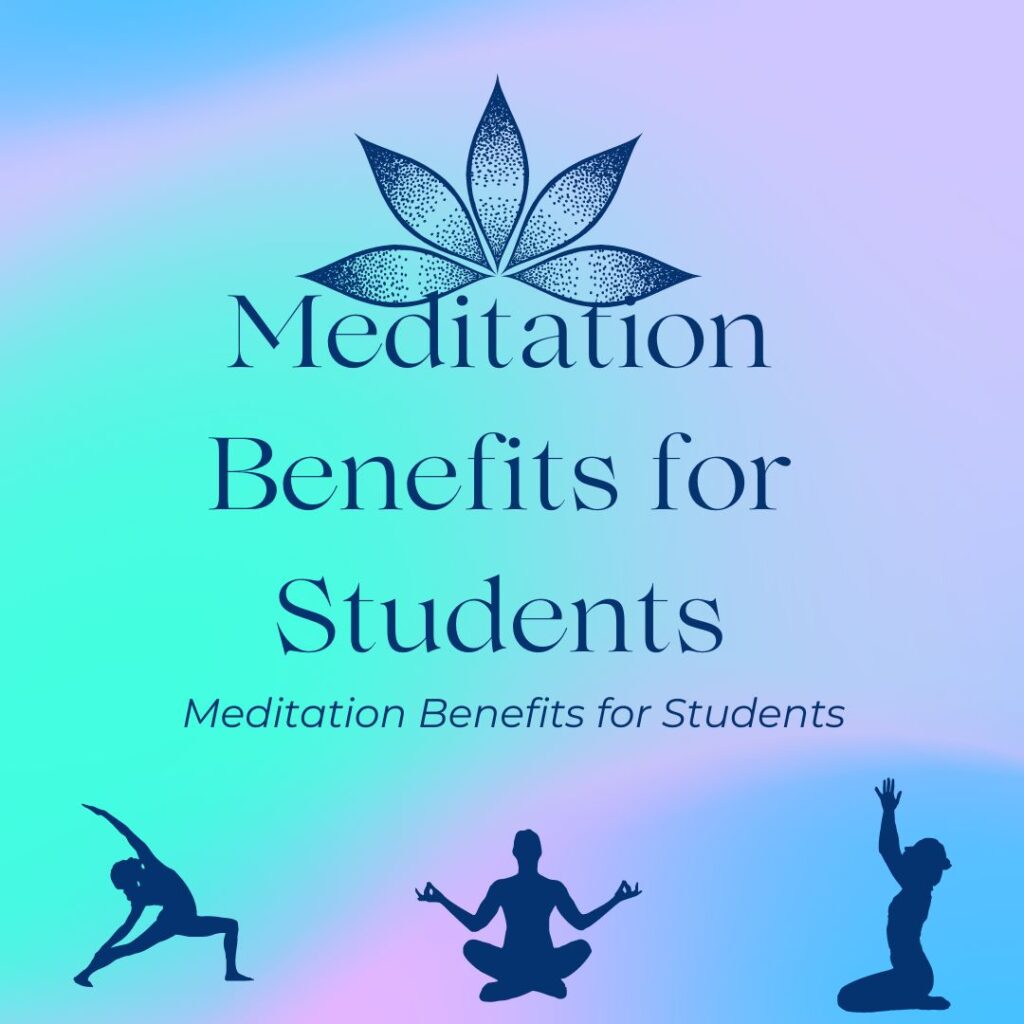In today’s fast-paced world, students are constantly juggling academic responsibilities, extracurricular activities, and social engagements. The pressures of modern education can take a toll on their mental and emotional well-being. This is where meditation comes into play, offering a multitude of benefits that can significantly impact students’ lives. In this article, we’ll delve into the numerous advantages of meditation for students, from improving focus and managing stress to enhancing overall well-being.
Introduction: Meditation Benefits for Students
Meditation, often associated with relaxation and spirituality, is a powerful practice that has gained popularity among students seeking refuge from the chaos of their academic and personal lives. While meditation has roots in ancient traditions, its benefits are now widely recognized by modern science. Let’s explore how students can harness the potential of meditation to achieve holistic well-being.
The Science Behind Meditation
Modern research has shed light on the physiological and psychological changes that occur during meditation. Brain imaging studies have revealed that meditation can lead to increased gray matter in regions associated with attention, emotional regulation, and self-awareness. Moreover, meditation triggers the release of neurotransmitters that promote positive emotions and reduce stress hormones.
Enhancing Focus and Concentration
One of the most significant challenges students face is maintaining focus amidst distractions. Meditation cultivates mindfulness, allowing students to anchor their attention to the present moment. Regular practice improves concentration, a skill essential for absorbing information during lectures and study sessions.
Stress Management and Anxiety Reduction
The academic journey often comes with stress and anxiety. Meditation acts as a stress buster by activating the body’s relaxation response. Through controlled breathing and mindfulness, students can manage the pressure, reduce anxiety, and approach challenges with a calm mind.
Boosting Creativity and Cognitive Function
Meditation encourages divergent thinking and creativity. By calming the mind’s chatter, students can tap into their innate creative potential. Additionally, meditation optimizes cognitive functions, enhancing memory retention and problem-solving abilities.
Promoting Emotional Well-being
Students can experience emotional turbulence due to academic and personal pressures. Meditation fosters emotional regulation and resilience. It empowers students to acknowledge their emotions without being overwhelmed by them, leading to a healthier emotional state.
Improving Sleep Quality
Inadequate sleep can impair cognitive function and overall health. Meditation promotes relaxation, making it an effective tool for improving sleep quality. By incorporating mindfulness practices before bedtime, students can ensure a restful night’s sleep.
Fostering Healthy Relationships
Effective communication and empathy are crucial for building meaningful relationships. Meditation enhances self-awareness and compassion, enabling students to connect with others on a deeper level and navigate conflicts more skillfully.
Building Self-Discipline and Willpower
Consistent meditation requires dedication and self-discipline. As students commit to their meditation practice, they develop better self-control and willpower, which can positively impact their academic and personal pursuits.
Meditation Techniques for Students
There are various meditation techniques suitable for students, such as mindfulness meditation, loving-kindness meditation, and body scan meditation. Exploring these techniques allows students to find the one that resonates with them the most.
Incorporating Meditation into a Busy Schedule
Busy academic schedules can make meditation seem daunting. However, even a few minutes of meditation each day can yield significant benefits. By integrating meditation breaks between classes or study sessions, students can recharge their minds.
Creating a Comfortable Meditation Space
Designating a quiet and comfortable space for meditation is essential. A clutter-free environment free from distractions enables students to immerse themselves fully in their practice.
Overcoming Common Challenges
Meditation is a journey that comes with challenges, including restlessness and wandering thoughts. These challenges are natural and can be overcome with patience and consistent practice.
Measuring Progress and Results
Tracking progress can be motivating. Students can maintain a meditation journal to record their experiences, emotions, and insights. Over time, this journal becomes a testament to their growth.
Conclusion
Incorporating meditation into students’ lives can be a transformative endeavor. From sharpening focus and managing stress to enhancing emotional well-being, meditation offers a holistic toolkit for thriving in both academics and personal life. By dedicating a few minutes each day to this practice, students can nurture their minds, foster resilience, and pave the way for a brighter future.
FAQs (Frequently Asked Questions)
Is meditation suitable for all students?
Meditation can benefit most students, but individual preferences vary. It’s recommended to start with short sessions and explore different techniques to find what works best.
Can meditation replace other stress management techniques?
Meditation complements various stress management strategies. It’s advisable to combine meditation with a healthy lifestyle and seek professional help if needed.
How long does it take to experience the benefits of meditation?
Some benefits, such as improved focus and relaxation, can be felt after a few sessions. Deeper benefits like emotional regulation may take more consistent practice.
Can meditation help with exam preparation?
Yes, meditation can enhance focus, memory, and overall mental clarity, which are valuable for effective exam preparation.
Where can I learn more about meditation practices?
You can explore online resources, meditation apps, or even attend local classes or workshops to deepen your understanding and practice of meditation.
